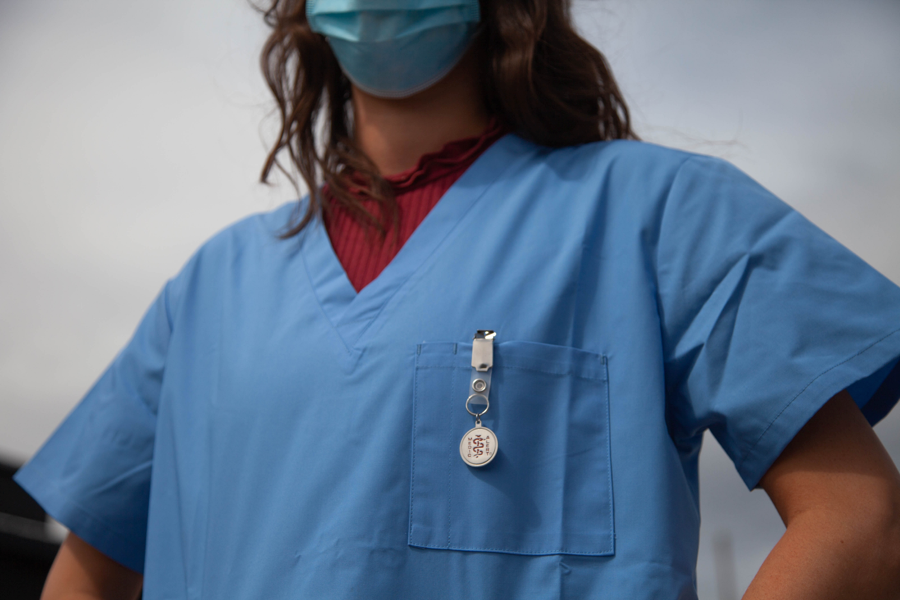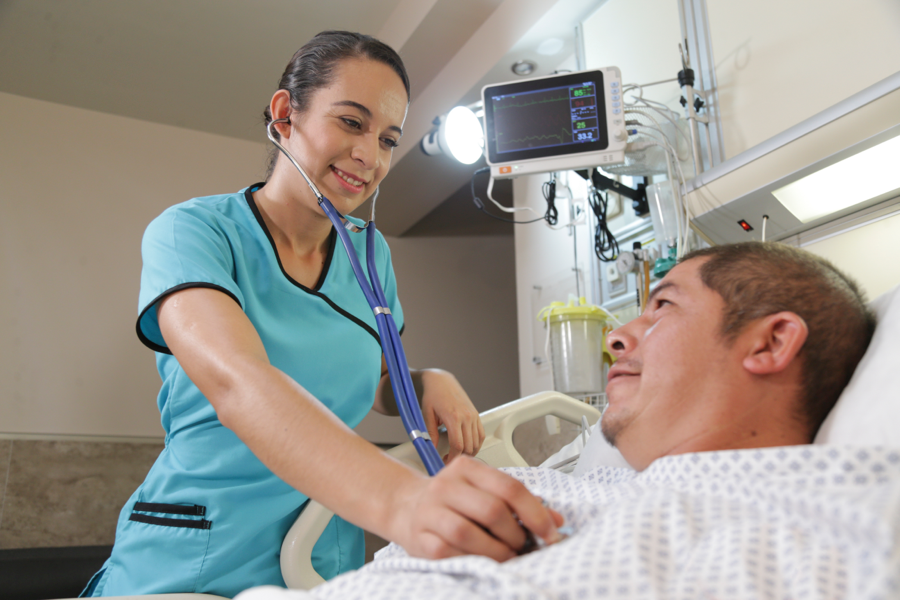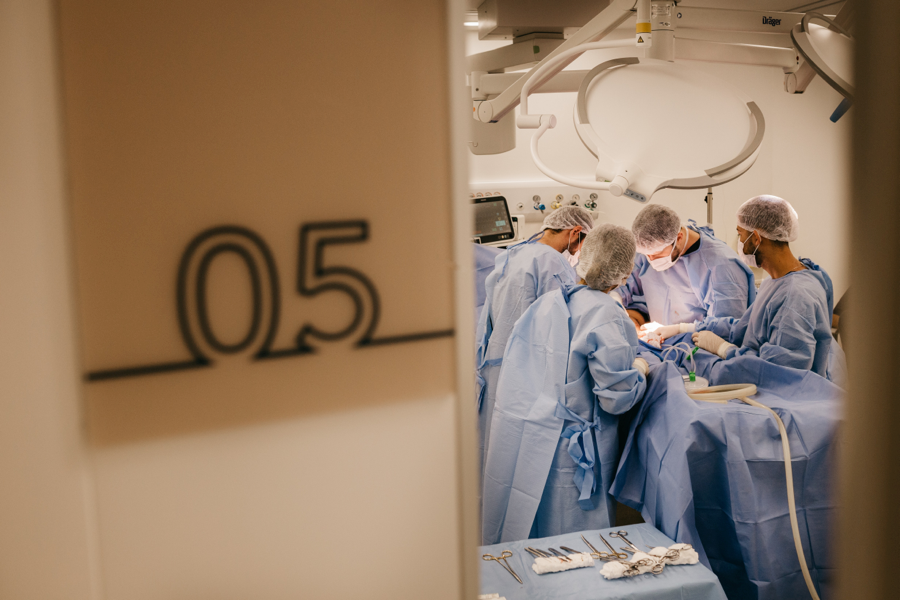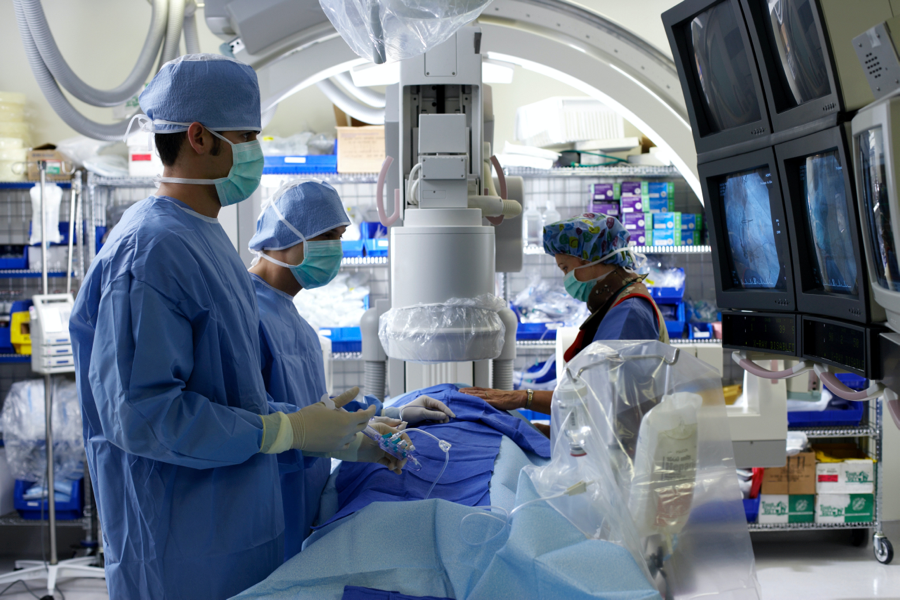
Labor and Delivery Nurse
-
 EveryNurse Staff
EveryNurse Staff
- Last Updated: August 9, 2023

What Is a Labor and Delivery Nurse?
A labor and delivery nurse is a registered nurse who specializes in providing care to women during pregnancy, labor, delivery, and postpartum. They are responsible for monitoring the mother’s health and the baby’s progress throughout the birthing process. Labor and delivery nurses must be able to recognize signs of complications during childbirth so they can take appropriate action if needed.
A labor and delivery nurse provides physical care for pregnant women before, during, and after childbirth. This includes performing assessments on both mother and baby; monitoring vital signs; administering medications as prescribed by doctors; assisting with vaginal deliveries or cesarean sections (C-sections); providing emotional support to mothers in labor; helping new mothers learn how to breastfeed their babies; educating parents about newborn care practices such as swaddling or diaper changing techniques; and documenting patient information in medical records accurately.
What Does a Labor and Delivery Nurse Do?
The primary role of a labor and delivery nurse is to provide direct patient care throughout the entire birth experience from pre-labor through postpartum recovery. They are an essential part of the birthing team, ensuring that both mother and baby have a safe delivery experience.
Labor and delivery nurses have many responsibilities that involve providing care for pregnant women from the onset of labor until post-delivery. These duties include:
- Preparing rooms for deliveries including setting up equipment such as IV pumps or suction machinesPreparing rooms for deliveries including setting up equipment such as IV pumps or suction machines
- Monitoring vital signs such as blood pressure, temperature, fetal heart rate, etc., to ensure the mother’s health is stable during labor.
- Providing physical and emotional support to mothers during labor
- Monitoring fetal heart rate, assisting with childbirth procedures such as forceps or vacuum extraction if necessary
- Administering medications such as epidurals or narcotics injections as prescribed by the doctor if necessary during birth processes
- Assisting with positioning changes to help facilitate an easier birth experience for both mother and baby.
- Educating patients on proper breathing techniques during contractions or pushing stages of labor.
- Performing assessments on newborns immediately following birth including Apgar scores (assessment of color, heart rate, reflexes) and weighing/measuring babies at the time of birth.
- Providing postpartum care to both mother and baby, educating patients on breastfeeding techniques, and more.
Labor and Delivery Nurse Skills
Effective Communication
Strong Clinical Judgement
Medical Skills
Labor and delivery nurses are responsible for checking vitals, administering medications, identifying complications, and responding to medical emergencies during the birthing process, so it’s essential that they have extensive clinical experience and specialized medical skills.
Throughout their careers, labor and delivery nurses must remain up-to-date on current standards of practice through continuing education courses or workshops offered by professional organizations such as the American College of Nurse-Midwives or the National Association of Neonatal Nurses. These organizations offer certifications specific to this field which can help ensure the best possible care for mothers and babies during the birthing process.
Some areas of specialization include:
- Fetal development issues
- High-risk pregnancies
- Advanced maternal age
- Cesarean section (C-section) birth
- Anesthetics and pharmacology
Summary of Steps
How to Become a Labor and Delivery Nurse
01
Earn an ADN or BSN Degree
Start your journey by obtaining an Associate's or Bachelor's degree in nursing, providing you with the essential foundation for this specialized field.
02
Obtain an RN License
After completing your degree, secure your Registered Nurse (RN) license to practice nursing professionally.
03
Gain Experience as an RN
Gain valuable experience as an RN, developing your clinical skills and understanding patient care dynamics.
04
Earn Certifications
Pursue relevant certifications such as Inpatient Obstetric Nursing (RNC-OB) to enhance your expertise in labor and delivery.
05
Advance Your Career with an MSN Degree
Consider further education with a Master's degree to explore leadership roles or specialized areas within labor and delivery nursing.
Steps in Detail
1. Earn an ADN Degree or BSN Degree
Labor and delivery nurses must have at least an associate degree in nursing (ADN) or a Bachelor of Science in Nursing (BSN). ADNs are two-year programs that provide students with the necessary skills to become registered nurses. BSNs are four-year programs that offer more comprehensive education, including courses on leadership, management, research, and evidence-based practice.
As with most healthcare professions a higher level of education provides a competitive edge when being evaluated by potential employers so earning a BSN degree is highly recommended.
2. Obtain an RN License
After graduating from your BSN program, you must pass the National Council Licensure Examination (NCLEX-RN) – a test administered by the National Council of State Boards of Nursing (NCSBN) – to become a registered nurse (RN). Each state has its own licensing board that sets the rules for obtaining an RN license; check with your state’s board of nursing for more information on licensure requirements in your area.
3. Gain Experience as an RN
4. Earn Certifications
Earning certifications is an important step for labor and delivery nurses to advance their careers. Many organizations offer certification programs specifically designed to help nurses build specialized knowledge and skills in preparation for careers in Labor and Delivery units. A few notable certifications include:
- Advanced Cardiac Life Support (ACLS) Certification
- Electronic Fetal Monitoring Certification (EFM)
- Inpatient Obstetric Nursing (RNC-OB)
- International Board of Lactation Consultant Examiners (IBLCE) Certification
- Pediatric Advanced Life Support (PALS)
- Neonatal Resuscitation Program (NRP) Certification
5. Advance Your Career With a Master’s Degree
Labor and Delivery Nurse Salary
The most recent data published by the BLS states that the average registered nurse salary in 2022 was 89,010. ZipRecruiter reports slightly higher numbers for labor and delivery nurses, stating that the average L&D nurse earns an annual salary of $96,039, or $46.00 per hour, depending on experience level and geographic location.
Job Outlook
The job outlook for labor and delivery nurses is positive due to the increasing demand for healthcare services related to childbirth. According to the Bureau of Labor Statistics (BLS), registered nurse employment is projected to grow 6% from 2022-2032 which is faster than average. This projection equates to over 195,000 job openings for RNs over the next 10 years.






